In my professional capacity, I recently gave a presentation to a group of stakeholders in the travel industry about the law on unruly and disruptive airline passengers. I took a gamble on introducing the subject under the strap line ’œnuts and basic bitches’ to several bemused faces in the audience, who naturally wondered where this was going, and what the link to disruptive passengers would be. The gamble seemed to pay off, as I talked them through two high-profile incidences of allegedly unruly passengers which were widely reported in the media. I wanted to take a deeper look at recent incidents and also explore some of the rules and regulations surrounding mid-air incidents.
The first one involved the former Korean Air executive, Ms. Cho Hyun-ah, who forced a Korean Air flight bound for Seoul in December 2014 to cease taxiing and return to the gate at New York’s JFK airport to have a member of the first class cabin crew ejected. It is alleged that the crew member served Ms. Cho macadamia nuts in the bag and not on a plate. Dubbed ’œnut rage’, the furious Ms. Cho took umbrage with the hapless flight attendant and allegedly forced him to kneel in apology, before throwing him off the parked aircraft. It then pushed back again and continued its journey on to Seoul.
It caused considerable scandal in South Korea, and led to Ms. Cho being fired, arrested, and briefly imprisoned. I would say she paid a stiff consequence, but not everyone does.
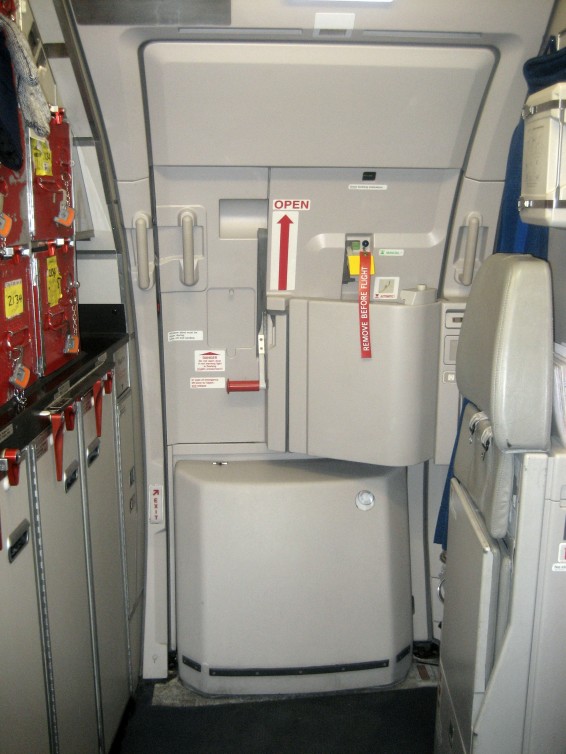
Bit of fresh air mid-flight? Think again. – Photo: Christopher Doyle | FlickrCC
The second incident occurred in June of this year when London Luton Airport’s Transport Police met supermodel Kate Moss at the aircraft door as a result of alleged disruptive behavior whilst on board an easyJet flight from Bodrum, Turkey. She’d apparently been drinking her duty-free vodka and was heard calling the pilot a ’œbasic bitch’ as she disembarked. In subsequent articles, some of the passengers who witnessed the event said that the cabin crew had acted disproportionately and that Ms. Moss had not been acting aggressively or in a way that might have endangered the aircraft. The transport ’œboys in blue’ made no arrests. Perhaps a storm in a teacup.
More recently, a drunken passenger attempted to open an aircraft door mid-air (not that she would have been even remotely successful in a pressurized cabin) on a British Airways flight to Boston, and in yet another incident, Jasbir Singh Bharaj was given an 11-month prison sentence after being convicted of violent behavior and indecency on an Emirates flight from Dubai to the UK last September.
These incidents usually make brief headlines and can elicit reactions, ranging from mild amusement to indignation and outright fear. As AvGeeks, our joy of flying could quickly unravel when the angry passenger sitting in seat 3B decides to kick off and hurl abuse (or worse), ruining the entire flight for other passengers and the crew. The curious fascination with watching one booze-fueled person (I’m staying gender-neutral here) take a swing at an equally inebriated other in a bar isn’t as fascinating inside a narrow-body at 35,000ft. It’s quite literally in your face and can be very alarming.
The aviation industry is paying attention to this ever-growing problem. The International Air Transport Association (IATA) has been very vocal about the impact that unruly and disruptive passengers have to its member airlines. Between 2007 and 2013, it estimated that there were more than 28,400 unruly passenger incidences, 20% of which required police and/or security service intervention. That works out at an average of 13 incidences a day over the six-year period, and those are just the ones that have been reported. Furthermore, not many of them lead to prosecution or punishment.
So what is the law on this? Well, certainly the pilots amongst you AvGeeks will know this better than me, and may have even relied on it. The 1963 Tokyo Convention on Offenses and Certain Other Acts Committed On Board Aircraft came into force in 1969 and has been ratified by 186 countries. Article 6 gives the captain the power to take reasonable measures, including restraint, against a person who he reasonably believes has committed or is about commit an offense on board in order to protect the safety of the aircraft and all those on board.
Article 10 gives the captain, and those involved in dealing with an unruly passenger, immunity from liability as a result of any legal proceedings. That seems pretty cut and dry. Why do so many incidences of ’œair rage’ therefore go unpunished? Well, despite the virtual omnipresence of the Convention, which has faithfully served its purpose for the past 50 years, there are some technical legal lacunae, which have created a few critical loopholes.
Firstly, under Article 3 of the Convention, ’œthe State of registration of the aircraft is competent to exercise jurisdiction over offences and acts committed on board.’ The practical reality is that the aftermath of such an event is likely to be the flight destination, but the Convention doesn’t grant the destination country jurisdiction. Will the local police arrest and charge the passenger under the penal laws of the country where the aircraft is registered? Well, no. It’s going to be the international diplomatic equivalent of saying ’œnot my issue, guvnor.’ The passenger walks away.
Secondly, under Article 9 of the Convention ’œthe aircraft commander may deliver to the competent authorities of any Contracting State in the territory of which the aircraft lands any person who he has reasonable grounds to believe has committed on board the aircraft an act which, in his opinion, is a serious offense according to the penal law of the State of registration of the aircraft.’
That’s legal speak for saying that the captain can hand over the unruly passenger to local police because he or she has broken the law of the country where the aircraft is registered. Again, the arrest will be made thousands of miles away in the country where the aircraft has just landed (possibly as a divert). The main problem is that the local police will obviously follow, and be subject to, their own local criminal code.
What if the passenger’s conduct hasn’t technically broken any local law or under that law no “serious offense” has actually been committed? The passenger potentially walks away. Interestingly, the Court of Appeal in South Korea found that Ms. Cho had not violated aviation safety laws because her tantrum had not resulted in the aircraft being forced to change routes (it hadn’t yet taken off). That, and her genuine remorse, seems to have been enough for the judge to suspend her sentence, in mitigation.
As I said, the industry has taken action. In April 2014, the International Civil Aviation Organization (ICAO) published the Montreal Convention for the Suppression of Unlawful Acts against the Safety of Civil Aviation (aka Montreal Convention). This convention amends the Tokyo Convention, extending jurisdiction to the State of landing (i.e. the destination country) and removing the reference to the penal law of the country where the aircraft is registered when determining whether a “serious offense” has been committed (although for reasons of proportionality and legal certainty, authorities in the State of landing shall consider whether the offense is also an offense in the State of the registration/operator).
The Montreal Convention has not yet been ratified in order to bring it into law. IATA has issued a general plea to all signatory countries to sign it and adopt and/or amend their national law. It is hoped that this will empower local police to take action, creating consistency and a global benchmark of zero tolerance for bad behavior when in flight. In fact, some countries, such as the US, the UK, Australia, Canada, and France already have laws in place to deal with unruly passengers who arrive in their territories.

A few drinks…sure. A whole bottle (or two)? Uh… no please – Photo: David Parker Brown | AirlineReporter
I’ve alluded to alcohol being the root cause of many of these incidents. That seems to be the general consensus too, particularly in respect of getting drunk on your carry-ons purchased at the duty free shop in the departure lounge. British airline Jet2 and World Duty Free are exploring the possibilities for selling duty free in tamper-proof bags as part of the airline’s commendable ’œOnboard Together’ campaign to raise awareness and tackle antisocial behavior on flights.
Without wishing to sound overly preachy or judgemental, us AvGeeks love aviation and want others to do so too. Whether we experience the joy, thrill, and excitement of each flight or are simply trying to get from A to B as smoothly as possible, none of us wants that spoiled by a small but unruly minority. The airlines also don’t want the expense of dumping tonnes of fuel, not to mention other costs, diverting the flight because of that angry passenger.
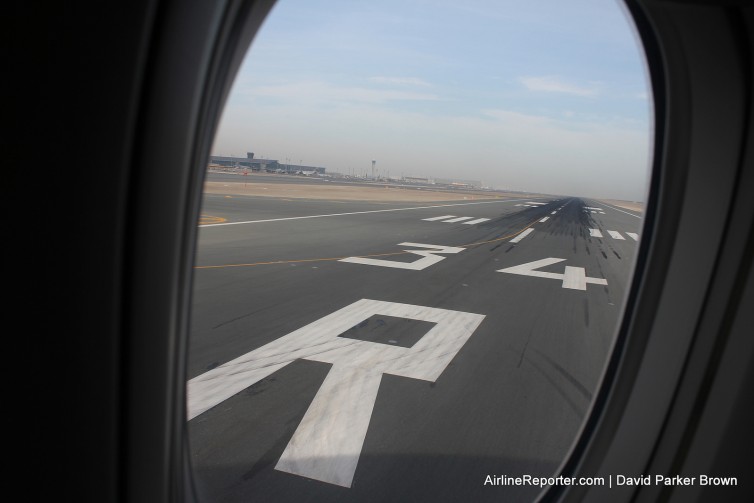
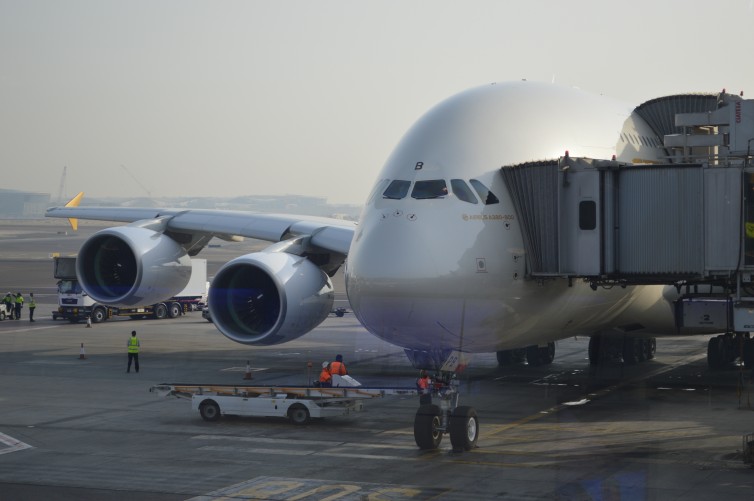

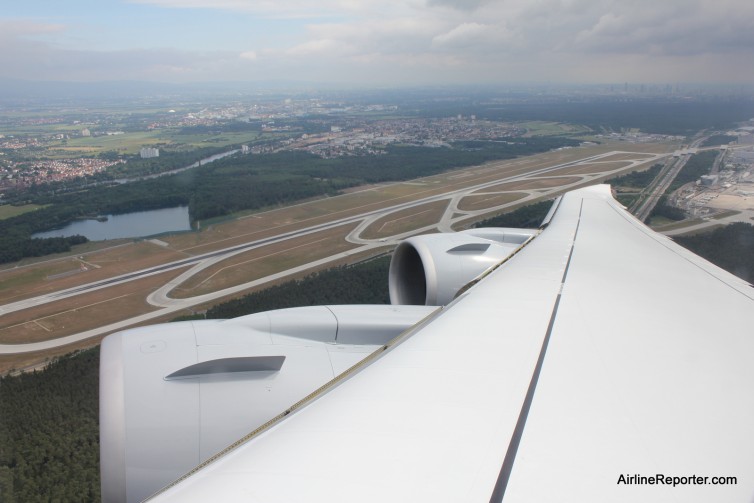
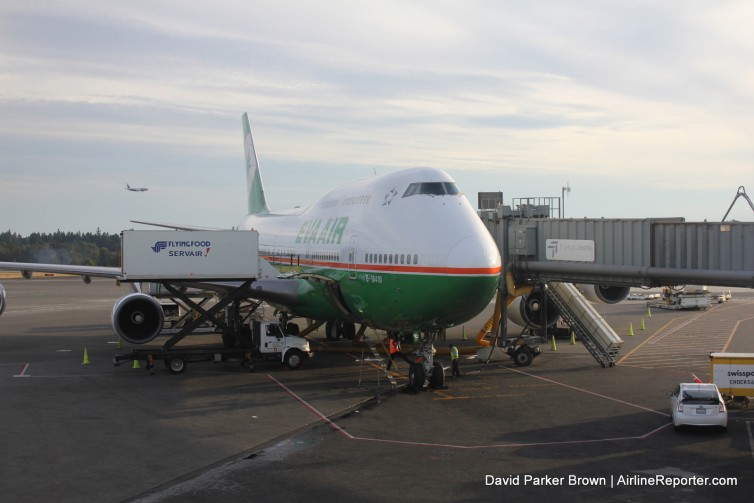
The one thing I keep going back to in that article is, why is Kate Moss flying easyjet?
Heh — that’s a good point. Guessing it flies to airports that no one else flies to and that’s where she wants to go?! In the US, always wonder why so many people fly Southwest (with no first).
David | AirlineReporter
Yes, that’s often the first thing that the media pick up on too. Indeed, Europe’s LCC’s route connectivity is generally very good and not all of these celebs have a biz jet on stand by. Either way, tantrums are a no-no.
It’s like a few years back when Kevin Smith started an online brou-haha with Southwest over being forced to buy an extra seat as he was considered a “passenger of size”. Mr. Smith’s physique aside, my biggest question was why a man who clearly has made millions of dollars was flying on Southwest to begin with. Not only can you easily afford to fly first class, you can also afford to take something other than the world’s biggest cattle car operator…
Seems to me that the airlines should be able to recover the costs incurred by unruly passengers, such as the cost of dumped fuel, diverting en route to have a passenger removed, costs of missed connections for other passengers, etc. The airline may not be able to collect but a bill for a couple hundred thousand dollars will certainly get people’s attention that an aircraft cabin isn’t a frat house on Saturday night.
Serious rules & regulations on unruly passengers need to be made clear to all passengers including cabin crew interactions with such passengers, which may incur during a flight. One such rule that will be integrated within Airv1 Airlines on duty free drink taken on board is for it to be stored away by the head cabin crew (No.1) during the entire flight. I may seem harsh, but passenger safety will not be compromised.
Follow Airv1 Airlines progress on the blog page http://airv1airlines.wix.com/airv1airlines#!blog/db81o